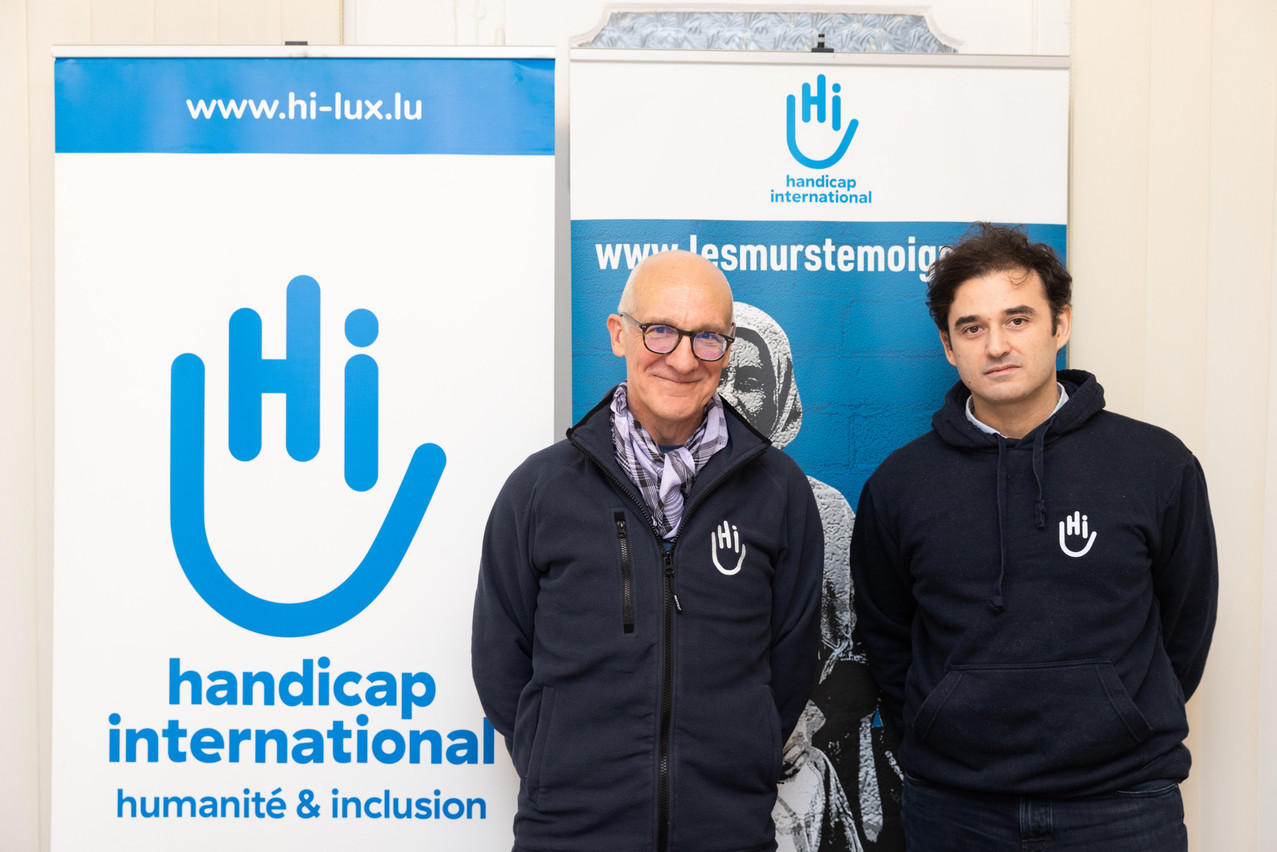Afghanistan was integrated into the agreement following a visit to the country last year by the Luxembourg director general of Handicap International Mehdi Magha. The €18.75m budget supports 16 countries in total in Africa, Asia, the Middle East and the Caribbean.
The Luxembourg government contributes €15m in funding while Handicap International has committed to raising the remaining €3.75m. Projects under the plan will focus on rehabilitation, inclusive education and economic inclusion services.
“We do not support the Taliban,” said Magha. But after his visit last year, he wanted to raise awareness about the plight of the people inside the country. “The response of the Luxembourg people was very generous,” he said.
With the support of local teams, Handicap International continued delivering services in the wake of the takeover of the Taliban in August 2021.
But it ceased operations when the new government announced that women were no longer allowed to work with non-governmental organisations. This not only discriminated against its team of 180 female staff (out of 420 local employees) but also effectively cut access to services for women who shouldn’t be treated by a male medical professional.
As an NGO, we are very adamant to say that the declaration of the government on the situation of women is very frightening.
Things aren’t always black and white, though. With 25 years’ experience in the country, Handicap International received assurances that some activities can continue. This includes the protection of female staff on mobile teams. “We hire our teams from the communities, so they know what is happening in the community,” Eric Weerts, a rehabilitation specialist, said. This enables them to communicate with local authorities, explain what they are doing and build confidence.
“There is a central government, but if you are 500 to 600 kilometres away from the capital, things are a bit different,” he said.
“As an NGO, we are very adamant to say that the declaration of the government on the situation of women is very frightening,” Weerts said. The NGO has teamed up with other organisations to make its voice heard in opposition to the ban on women. “We try to negotiate exceptions. It’s not the right way, but we don’t have other options for the moment,” said Magha.
Health system collapse
As a rehabilitation specialist, Weerts works, for example, with people who have sustained injuries and face a lifetime of disability. “My role is to support the set-up of services to improve the quality of life of people,” he said, but he also analyses the effectives of these services, how they can be made more efficient, cost-effective and sustainable.
A physical therapist by training, Weerts has worked with Handicap International since 1991 and in countries including Thailand, Cambodia and Vietnam. Several of the projects he has worked on were funded by the Luxembourg ministry of foreign affairs and he is a regular visitor to Luxembourg, even if he is based in Brussels.
Weerts first started working in Afghanistan in 2001, initially based in Pakistan to provide relief for aid workers who had to flee the country during the 2001 conflict. Activities resumed within a few short weeks, for example at a rehabilitation centre in the country’s south in Kandahar but also through mobile teams supporting refugees displaced within the country.
He has regularly visited Afghanistan since, most recently in January, and seen the degradation of its economy and health system following the 2021 regime change.
“There is a collapse in the health system where trauma care is only lifesaving,” he said. “There is no real trauma management anymore after injury.” This means that people have to leave hospital much earlier and are at greater risk of loss of life or long-term effects that could have been avoided or reduced with extended care.
“The other issue is malnutrition,” Weerts said. While there were seasonal and geographical food shortages before, malnutrition is now common and widespread. “Children under five show up with severe diseases, very severe lack of normal development.” Malnutrition can affect physical and neurological development and Handicap International works on early detection of disabilities.
Long-term funding
The people of Afghanistan want their life to continue, they want to have a salary every month, to send their children to school, to have a peaceful country, Weerts said. “This is what everybody wants. Afghans aren’t exceptional to other citizens in the world.” The current government, however, makes this impossible.
“All the aspirations that the average Afghan has, haven’t been fulfilled,” Weerts said, adding that he sees many young people considering fleeing the country. And while Handicap International hopes to make a difference in people’s lives, he said humanitarian assistance can “never replace a functioning government. Period.”
We will have, for the first time, funding from the ministry of foreign affairs to cover our operations in Afghanistan in the long run.
The Luxembourg agreement, Weerts said, is exceptional and it stretches over five years and allows a fair amount of flexibility in terms of assessment and attribution of resources as the situation develops. The NGO will be able to do cost calculation of training and services within a sustainable framework, which can then hopefully help to attract other donors.
“We will have, for the first time, funding from the ministry of foreign affairs to cover our operations in Afghanistan in the long run,” said Magha, calling the agreement a “fresh start”. The NGO submits a yearly report to the ministry and goes on regular visits from Luxembourg to the countries where it operates.
And while Weerts and Magha agreed that it is frustrating to see a country descend into chaos, they also found that the people are resilient, only their capacity for dealing with one shock after another is decreasing. The country, he said, is “going from development support to emergency support. It should be the other way around.” People are fighting for survival, Weerts said. “And that’s frightening.”


